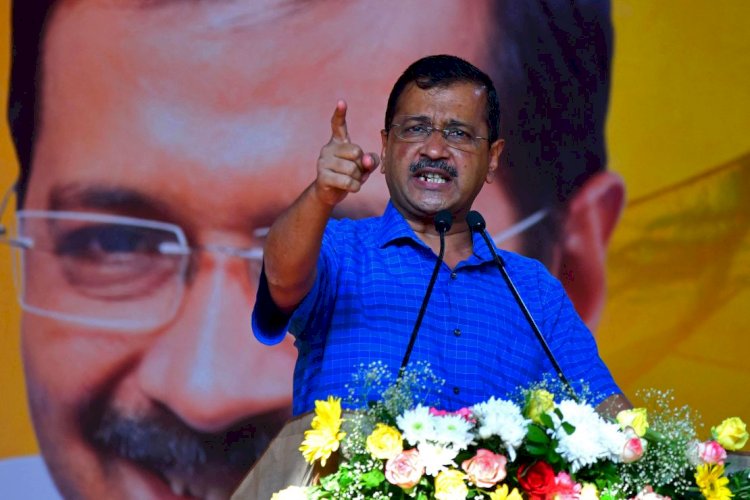Delhi Chief Minister Arrested Amid Allegations of Corruption: Political Turmoil Ahead of Indian Elections
The arrest of Delhi Chief Minister Arvind Kejriwal by the Enforcement Directorate on corruption charges has sparked controversy ahead of India's general elections. Allegations of political vendetta and manipulation by the ruling Bharatiya Janata Party (BJP) have emerged, with opposition parties rallying to Kejriwal's defence. This development underscores broader concerns about the erosion of democratic norms and the integrity of India's electoral process. As the country braces for the elections, the case of Kejriwal serves as a critical test for India's commitment to democracy and justice.
By Shreya Rajvanshi Gangal

In a dramatic turn of events, Arvind Kejriwal, the Chief Minister of Delhi and a vocal critic of Prime Minister Narendra Modi, was arrested by the Enforcement Directorate (ED) following a raid on his residence in New Delhi. The arrest, which occurred just weeks before India's general elections, has sparked allegations of political vendetta and raised concerns about the integrity of democratic processes in the world's largest democracy.
The Allegations and Political Context
Arvind Kejriwal and his Aam Aadmi Party (AAP) have been accused of corruption related to favouritism towards certain alcohol dealers and the alleged use of unlawful funds for election campaigns, stemming from a now-defunct liquor policy. Kejriwal vehemently denies these allegations, attributing his arrest to a purported conspiracy orchestrated by the ruling Bharatiya Janata Party (BJP). This arrest marks yet another episode in the ongoing power struggle between the AAP and the BJP, with Kejriwal emerging as a prominent opposition figure challenging Modi's leadership.
Political Fallout and Reactions
The timing of Kejriwal's arrest, coupled with allegations of financial crackdowns on opposition parties like the Indian National Congress, has intensified the political showdown ahead of the elections. Opposition leaders have rallied to Kejriwal's defence, decrying what they perceive as authoritarian tactics employed by the ruling government to stifle dissent and weaken political adversaries. Congress leader Rahul Gandhi accused the BJP of orchestrating a deliberate campaign to undermine opposition parties, alleging the freezing of their accounts to hamper election campaigning.
The Aam Aadmi Party's Rise and Influence
Founded on principles of anti-corruption activism, the Aam Aadmi Party surged to power in Delhi, capturing the public imagination with promises of clean governance and social reforms. Kejriwal's tenure as Chief Minister has been marked by initiatives aimed at improving essential services like water, health, and education. Despite its regional stronghold, the AAP's influence extends beyond Delhi, as evidenced by its participation in a broad opposition alliance comprising 26 political parties.
Concerns for Democratic Norms
The arrest of Arvind Kejriwal underscores broader concerns regarding the erosion of democratic norms and institutions in India. Critics argue that the use of investigative agencies for political purposes undermines the rule of law and fosters an environment of fear and intimidation. With allegations of media manipulation and financial crackdowns on opposition parties, the integrity of India's electoral process hangs in the balance, raising questions about the fairness and transparency of the upcoming elections.
Conclusion
The arrest of Delhi Chief Minister Arvind Kejriwal amidst allegations of corruption represents a critical juncture in Indian politics, fraught with implications for democracy and governance. As the country braces for the upcoming elections, the spectre of political manipulation and authoritarian tendencies looms large, casting a shadow over the democratic ideals upon which India was founded. The resolution of Kejriwal's case and the conduct of the elections will serve as a litmus test for the resilience of India's democratic institutions and the commitment to upholding the principles of justice, accountability, and pluralism.
What's Your Reaction?


















